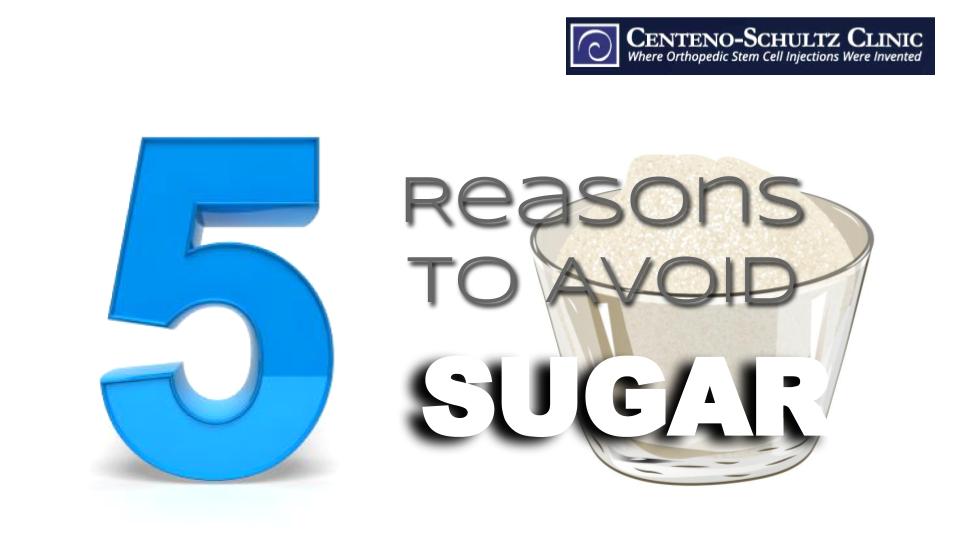If there’s one nutritional revelation that’s been front and center over the past decade, it’s that sugar is dietary enemy number one! For decades, we were led to believe fat consumption was destroying our bodies and creating epidemics of obesity, while all along it was sugar we needed to be concerned about. Why? There stream of studies revealing why sugar is so bad for us seems to never end. So today, we thought we’d narrow it down and just focus on our top 5 reasons we believe you should cut the sugar today
1. Cancer Loves Sugar
If cancer has a power food, one thing that sends it into a feeding and growing frenzy, it’s sugar. And when the sugar supply is high, cancer cells can become so strong that the immune system can’t destroy them. At any given time, there are cancer cells that normally occur in our bodies; our immune system, however, does a fantastic job of tracking them down and eliminating them before they can divide and grow and blossom into a full-blown cancer disease. If we’re consuming a high-sugar diet, we’re fighting our own immune system and giving our cancer cells a constant supply of fuel.
2. Sugar Feeds Bad Gut Bacteria
Another very important reason to cut the sugar is that both good and bad bacteria live inside our gut microbiome (the environment inside our intestines). The key is to maintain a proper balance of the two. When bad bacteria overpowers the good (this is called dysbiosis), this can lead to a whole host of problems—obesity, leaky gut, gas, bloating, general discomfort—and over time the small problems can become really big ones. We’ve even seen evidence of a gut-brain connection in Parkinson’s disease. Like cancer cells, our bad bacteria in our gut thrive and grow on sugar, so the more sugar you consume, the more you’re contributing to an unhealthy gut.
3. Cutting Sugar Improves Stem Cells
While cutting sugar makes for healthier cells in general, this is especially true if you are preparing for a stem cell treatment. High blood-sugar levels, such as those seen in prediabetes, or metabolic syndrome, have been shown to decrease a stem cell’s potential to regenerate. So before a stem cell treatment, which involves harvesting your own stem cells, we always recommend cutting the sugar.
4. Fake Sugar Is No Better
If you think you can just substitute the fake sweeteners for the real ones, think again. These sugar imposters are so good at pretending to be the real stuff that one study found that they stimulate the same insulin release as real sugar. Another also found that diabetic risks and metabolic changes in the body were the same with fake sugars as they were with real sugar. In addition, they’ve been linked to gut imbalance, dementia, stroke, and poor-quality stem cells—pretty much all the same links as sugar we’ve mentioned. So toss the blue packets, the pink packets, and, yes, even the yellow packets, and never look back.
5. Being Healthy Doesn’t Mean You’re Immune to Sugar
You may be a generally lean and healthy person, but this doesn’t mean you’re immune to sugar’s ill effects. One study compared the effects of sugar consumption on both healthy men and unhealthy men and found both groups experienced the same changes in fat metabolism, increasing the risk of heart disease in both groups. Both groups also experienced weight gain when consuming high amounts of sugar, regardless of general health status.
How to Cut the Sugar
Maybe you know you want to cut the sugar, but you don’t know how to cut the sugar or even where to start. We’ve added a short list below of many of the terms you can look for on food labels to determine if they contain sugar:
- Table sugar (glucose and fructose)
- High-fructose corn syrup (crystalline fructose, glucose-fructose, etc.)
- Cane juice
- Cane sugar
- Malt syrup
- Maltose
- Dextrose
- Other “-ose” suffixes on labels
- Invert sugar
- Maltodextrin
- Barley malt
- Caramel
- Anything with “fruit juice” (dried fruit juice, fruit juice syrup, etc.)
- Agave
Be careful with carbohydrates as well, as these also turn to sugar in the blood. Opt for whole and natural carbohydrates rather than unprocessed carbohydrates. You can also download our own Dr. Pitts’s free e-book Nutrition 2.0 here to learn more about not only how to cut the sugar and other high-glycemic index foods, but also nutrition in general.
